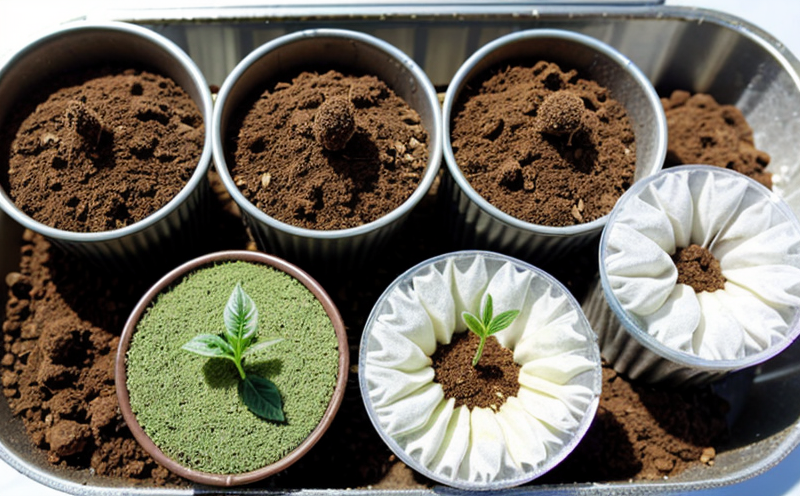Seed Enzyme Activity Testing
In agriculture and forestry testing, seed quality is a critical factor in ensuring successful crop establishment. Seed enzyme activity testing plays a pivotal role in determining the physiological condition of seeds before planting. This test evaluates the enzymatic capacity of seeds to undergo germination, which directly influences their ability to grow into healthy plants. Proper enzyme activity ensures efficient nutrient mobilization and contributes significantly to seed vigor.
Enzymes like amylase, cellulase, protease, and lipase are crucial in breaking down stored food reserves such as starch, cellulose, protein, and fats within the seeds. These enzymes are essential for initiating germination by converting stored nutrients into forms that can be used by growing embryos.
Seed enzyme activity testing is particularly important when dealing with new or imported seed lots where quality assurance is paramount. It helps in identifying potential issues like dormancy, viability, and overall health of the seeds. By assessing these factors, laboratories can provide valuable insights to farmers, seed companies, and other stakeholders.
The methodology typically involves extracting enzymes from ground seeds using specific buffers followed by incubation under controlled conditions. The activity is then measured based on substrate degradation rates or product formation in different enzymatic pathways. This process provides a quantitative measure of enzyme function which can be correlated with seed vigor indices (SVI).
Compliance with international standards such as ISO 6341:2018 ensures consistent and reliable results across various laboratories worldwide. Understanding the baseline requirements helps in setting realistic expectations for what this test can deliver.
Scope and Methodology
The scope of seed enzyme activity testing encompasses both qualitative and quantitative assessments aimed at evaluating key enzymes involved in germination processes. The primary focus is on detecting active forms of these enzymes indicative of healthy seeds ready for planting.
- Sample Preparation: Seeds are carefully selected based on size, shape, and color to ensure homogeneity. They undergo thorough cleaning before being ground into fine powder using appropriate machinery.
- Extraction: Enzymes are extracted from the ground seed samples using buffered solutions designed to maintain optimal pH levels conducive for enzyme stability during extraction.
- Inhibition Tests: To determine specific enzyme activities, inhibitors are added selectively. For instance, if amylase activity is being measured, it would be inhibited by adding an appropriate inhibitor like iodine solution which reacts specifically with starch.
Benefits
- Promotes Quality Control: By identifying seeds with low enzyme activity early on, potential losses due to poor germination rates can be mitigated significantly.
- Saves Time and Resources: Early detection of non-viable or dormant seeds allows for timely replacement before they impact field performance negatively.
- Bolsters Crop Yield Potential: Healthy seeds with robust enzyme activities lead to better root establishment, faster emergence, and ultimately higher yields.
Eurolab Advantages
EuroLab stands out as a leader in agricultural testing services by offering comprehensive seed enzyme activity tests backed by state-of-the-art equipment and experienced technicians. Our commitment to quality is reflected through strict adherence to international standards like ISO 6341:2018, ensuring accurate and reliable results every time.
- Accurate Results: Leveraging advanced analytical techniques allows us to provide precise measurements of enzyme activities even in trace amounts present within seeds.
- Expertise: Our team comprises seasoned professionals with extensive experience in plant biology and agricultural science, ensuring that each test is conducted with utmost care and precision.
- Rapid Turnaround Times: To minimize disruption to your operations, we strive to deliver timely reports without compromising on quality standards.





